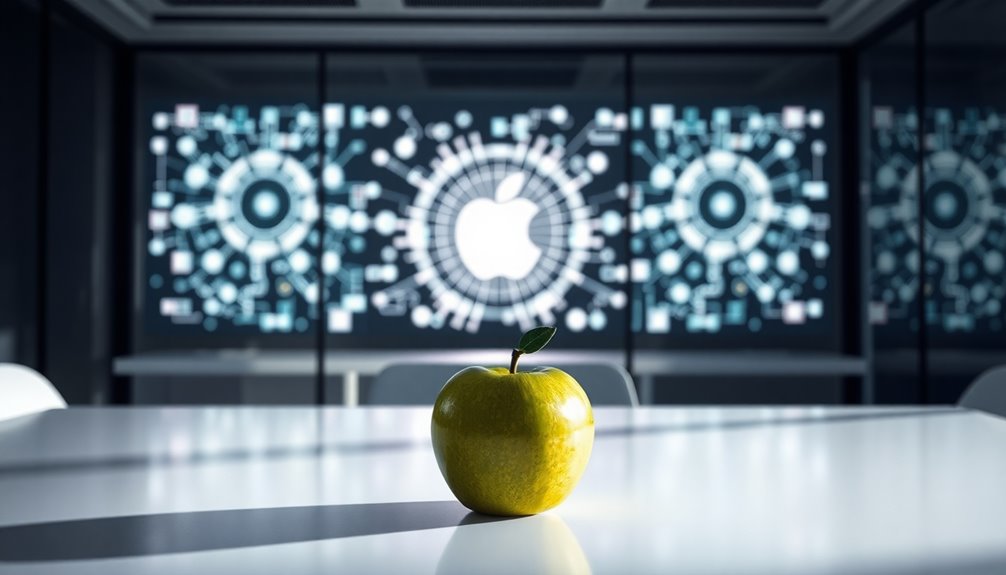As the AI landscape shifts rapidly, you might wonder how Apple maintains its stronghold. Unlike many competitors, Apple prioritizes user privacy and security, which sets it apart. With enhancements to Siri and predictive text, it's clear the company aims for a more intuitive experience. Yet, challenges loom, including public scrutiny over AI-generated content. What strategy is Apple employing to navigate these obstacles while remaining a leader in the AI sector?

In a rapidly evolving tech landscape, Apple remains steadfast in its commitment to user-centered AI experiences. You'll notice that Apple is integrating AI to make your interactions with its products more intuitive and personalized. Whether it's enhancing Siri's capabilities or improving predictive text on your iPhone, Apple's focus is clearly on making technology feel like an extension of you. The company's software development kits (SDKs) are getting a boost with AI features, empowering developers to create innovative apps that cater to your needs. Additionally, this significant focus on AI integration across product lines indicates Apple's ambition to enhance user experiences. This integration of Natural Language Processing is particularly crucial, as it allows for more meaningful and context-aware interactions.
As you enjoy these advancements, you can rest assured that Apple emphasizes privacy and security alongside AI innovations. Unlike some competitors, Apple prioritizes safeguarding your data, ensuring that AI enhancements don't compromise your personal information. This commitment sets Apple apart in a crowded market, where concerns about data privacy are top of mind for many users.
However, Apple faces its share of challenges in this competitive AI landscape. The decision to pause AI-generated news summaries after backlash from media outlets highlights the complexities of implementing AI responsibly. You might've seen the criticisms surrounding generative AI, particularly regarding misinformation. Apple is aware of these issues and is actively working on improving the accuracy and reliability of its AI features, so you can trust the technology more.
Looking ahead, the potential for AI applications within Apple's ecosystem is exciting. Imagine smarter home automation systems that seamlessly integrate with your devices or advanced language processing capabilities that enhance your day-to-day tasks. Analysts predict that these developments could lead to a significant increase in iPhone sales, with projections estimating over 240 million units shipped by 2025, partially fueled by AI features.
Apple's commitment to on-device AI means that your privacy remains a priority while you enjoy seamless experiences. The company is also exploring partnerships, such as those with Tencent and ByteDance, to expand its AI capabilities in China, showing its ambition to stay ahead in the ever-evolving tech race.









